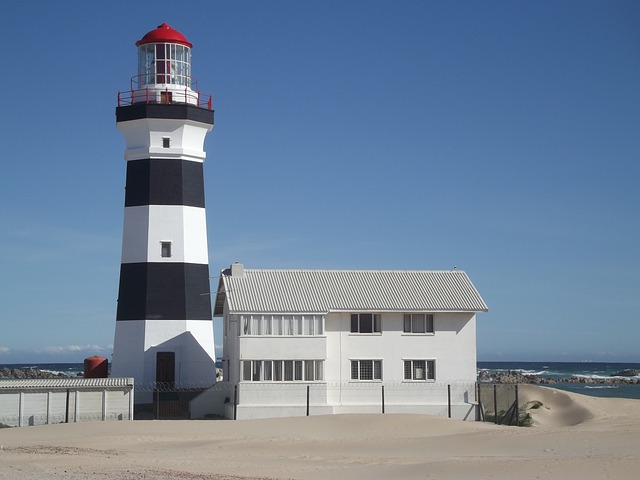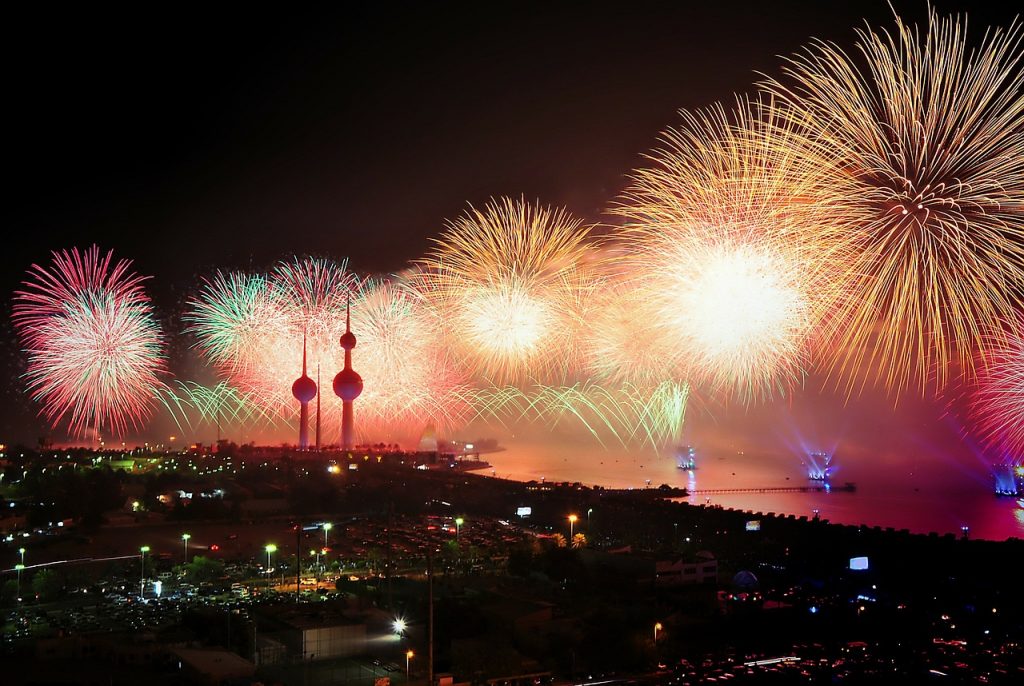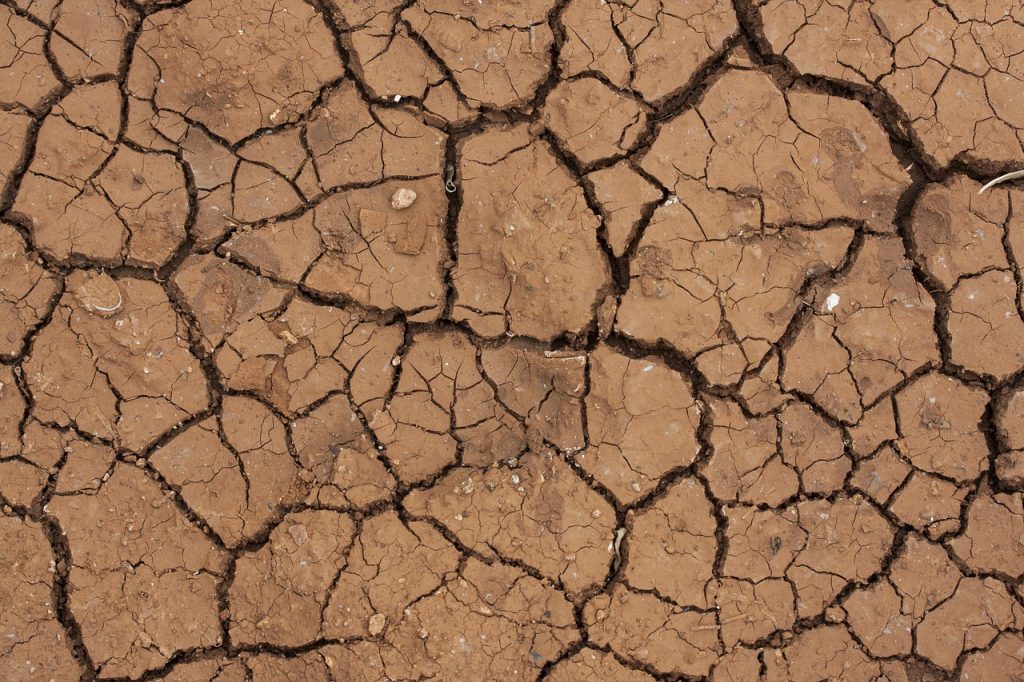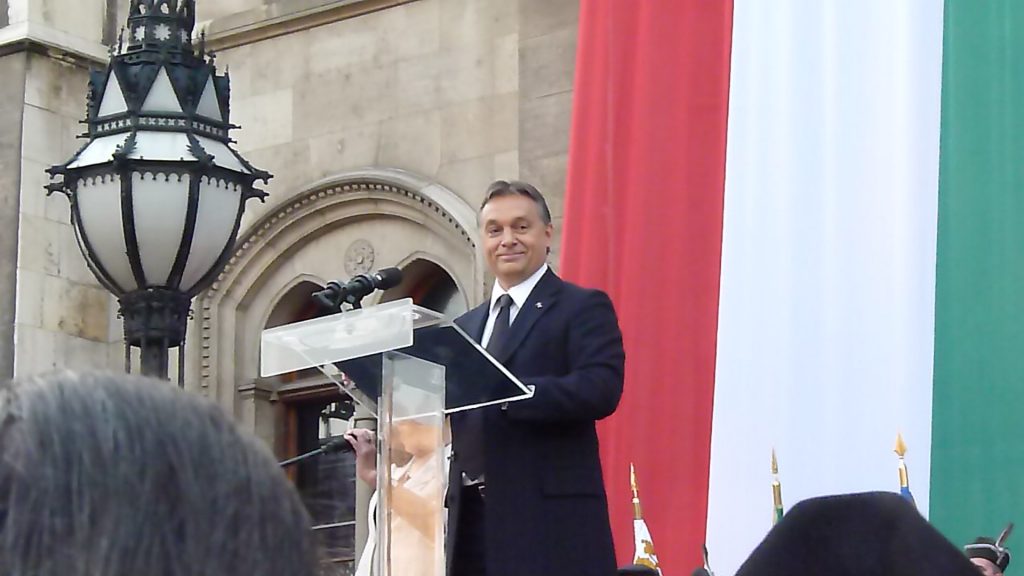
Port Elizabeth
As various countries in Africa recover from previous crises and build solid reputations as good places to do business, the champions of past times are losing their luster. That is the case for South Africa, previously seen as a reliable business partner for global trade, but which has been causing more and more concern from international investors. The unexpected intervention of Port Elizabeth in an international territorial negotiation may be the straw that breaks the camel’s back.
On the Northwest Atlantic coast, between Morocco and Mauritania, lies Western Sahara, a former Spanish colony. In 1967, Spain withdrew from the area, leaving it to its own fate. The desert strip remained inhabited by local communities, and Moroccan businesses which employ them. An armed separatist group, named the Polisario front, was created in 1973, which aimed at excluding Morocco from the land, making it a separate and sovereign nation. The United Nations classify Western Sahara as a “non-self-governing territory”, something the Polisario front would like to change.
The Saharawi people stretch across the area, all the way to the Algerian side of the border, where refugee camps are home to near 200 000 people, where NGOs decry the shortage of food, water, basic supplies and access to elementary services. Yet, there’s no lack of means, as Magnus Norell, Senior Policy Analyst at the Washington Institute for Near East Policy and the European Foundation for Democracy, points out. “The newly presented report from the EU corruption watch-dog — OLAF — about embezzlement of funds from the EU to Polisario, comes as no real surprise for those of us who have followed the confluence between organized crime and terrorism in West Africa”, he explains. According to Norell, “OLAF shows how Polisario leadership, in cahoots with Algeria, has inflated the number of refugees in the camps in Tindouf in order to increase aid-money and supplies intended for the refugees. Furthermore, good-quality foodstuff like Canadian wheat for example, intended for the refugees were switched to lower-quality provisions, selling the higher quality goods on the open market.”
“Polisario has become even more entangled in various criminal activities, like smuggling and trafficking, says Norell. Even more worrying is the fact that militant Islamists have aggressively targeted the Tindouf-camps in efforts to recruit militants.” From this point of view, life seems better in the western part of the land, where Moroccan companies have heavily invested into the local mining economy, as well as in schools and proper housing conditions for workers. However, the Polisario front claims that Saharawi people are being robbed of their natural resources and wish to gain complete economic control of the area. UN-held negotiations have been under way for years, and were recently reset in an attempt to find a solution to the dispute. The Polisario front therefore tried to find higher grounds for the negotiation.
Aware that phosphate ore from Western Sahara was transiting through the world on their way towards clients, the Polisario Front sent requests to several courts, hoping to have cargos seized, especially in April 2017. A Panamanian court temporarily held back a Vancouver-bound ship, but released it a few days later, as the case was for the United Nations to rule upon. But a local South African courthouse, in Port Elizabeth, did not declare itself incompetent and decided to judge the case on merits, despite the ongoing UN negotiation.
As a result, the Cherry Blossom, a Danish cargo boat, transporting 55 000 tons of phosphate on its way to New Zealand, has been held captive with 30 hapless sailors on board, for two months, with no solution in sight. The Moroccan government issued a formal complaint through its spokesman, M. El Khafi, describing the self-proclaimed competence of the local South African court as “contrary to international law”.
The Polisario front, on the other hand, celebrated its temporary victory and threatened with further legal action: “The reputational risk for ship owners and charterers is that which results from knowingly participating in the export of resources from a territory widely referred to as Africa’s last colony. This entails possible rejection of trade by parties interested in an end to the occupation of Western Sahara, including commercial enterprise and governments throughout Africa and elsewhere”, as was reported by the Western Sahara Resource Watch, an international NGO favorably inclined towards the Polisario Front and opposed to Morocco.
It’s hard to say whether this initiative could have happened at a worse time. South Africa was recently set back by Standard & Poor’s into the BB+ category, known as speculative, which recommends that investors avoid dealing in the area. In fact, South Africa has been losing speed for some time, while neighboring Tanzania, Mozambique and Rwanda proudly display soaring development rates. Half a century ago, South Africa held a unique geographical position in international trade, with harbor facilities unlike any other in the area. In other words, international business which wanted to deal in the area had little choice but to plant their flag in South Africa.
But things have changed, now that the entire area is developed. In response to the Cherry Blossom caper, businesses who fear being dragged into international dispute they hold no stakes or interest in, have simply decided to stop for refuelling in other countries, in order to secure their activities. Following the arrest of the Cherry Blossom in South Africa, New Zealand now makes sure the cargo ships refuel safely: “Since the ship was detained in South Africa, Balance Agri Nutrients and their shippers have been finding ways of evading the legal tactics used by the Saharan campaigners. They and their shippers made sure the carrier, Common Spirit, travelled to New Zealand via Cape Horn, and so avoided South African jurisdiction”, reported Eric Frykberg for RNZ.
South Africa didn’t need this: since 1980, the unemployment rate has more than doubled, hitting nearly one in four adults in 2016. The local currency has been in constant devaluation over that same period: when a rand could buy a dollar in 1980, with change to spare, nearly 16 are necessary to buy a green bill today. According to the IMF “Slow economic growth since 2008 has further aggravated unemployment, real disposable income is stagnant, and households are heavily indebted. […] Stress tests confirm the capital resilience of banks and insurance companies to severe shocks but illustrate a vulnerability to liquidity shortfalls.”, which is exactly what South Africa will likely experience, as businesses and investors avoid the area for fear of being held hostage. This is the price to pay for ludicrous political choices.
World
What Can Other Countries Learn from Kuwait’s Welfare System?

As an oil-rich nation in one of the most oil-rich areas of the world, Kuwait has always been a nation capable of generating a huge amount of money relative to its size. As a result of the money the central government makes from oil sales, it has instituted one of the most comprehensive and generous welfare systems in the world.
The country’s welfare system is built upon the principle that the nation’s wealth should be shared among the people. In addition to oil, there are a few other valuable natural resources that Kuwait profits from. The money that the state generates from all of these commodities more or less guarantees that every citizen is able to live a comfortable life.
What Makes Kuwait Special?
The government of Kuwait subsidises basic services such as telephone lines, water, electricity, etc. Meanwhile, local cooperatives are able to provide food to other citizens at a greatly reduced price. Medical care and education are both free. Kuwait is also one of the few countries that consider a job and a home to be a basic constitutional right.
Middle Class
Because of this generous welfare system, as many as 90% of Kuwaitis are considered to be middle class. The country’s constitution, democratic institutions, and its relatively small population, all allow its citizens to profit from the nation’s oil reserves. As Fahad Al Rajaan, the director general of the Public Institution for Social Security puts it, “if you look at these… elements, it is evident that we are in a much better position than many countries in the world.”
Pensions
Kuwait’s social pension system features three unique characteristics, which set it apart from most. First of all, there is the way that it is financed. Contributors and employers contribute 60% to the total, while the government covers the remaining 40%. Many analysts, including Al-Rajaan, consider this to be the primary reason why the Kuwaiti pension scheme is one of the best in the world.
The second important feature of the Kuwaiti pension scheme is that it is fully funded. This means that the scheme is kept sustainable and solvent. In many other countries, state pension funds are paying out money as fast as they can get it in, creating uncertainty for the future.
Finally, there is the fact that the Kuwaiti pension fund pays out very generously. Once citizens reach the age of 30, the coverage increases to 95% of salary. This is much higher than the rates available in many other countries. Kuwait also has a generous retirement age of 50.
The Kuwaiti welfare system is a prime example of the potential power of redistribution of wealth. The Kuwaiti welfare system is based on a simple principle, that the fruits and assets of a nation should be shared equally among its citizens.
Many people argue against more generous welfare systems on the basis that they represent a drain on resources, to benefit the few at the cost of the many. The Kuwaiti system stands as evidence that it is possible to institute a very generous welfare program, while still encouraging economic growth and prosperity.
Environment
Day Zero: A Desperate Warning from Cape Town to the World

The unpreparedness of the human race has slowly but steadily come to the surface over the previous decade when it comes to ensuring our own survival and more importantly, that of the following generations. Before we even attempt to realize the impacts of climate change that are thrown into the faces of some community who then serve as the unfortunate examples of what’s going to happen, another repercussion pops up into the frame at the cost of another unsuspecting community, a country, or even a city. The city of Cape Town in South Africa serves as the most recent of those examples, and the crisis in the city bodes an ultimatum like never before to other thriving cities on the planet: mend your ways or follow suit.
“Day Zero”: as dire as it sounds
The event currently underway in Cape Town could be aptly described as probably its worst drought in nearly a century, one that has seen its people and authorities struggle to obtain water in the wake of depleting natural sources in order to sustain even their daily hygiene rituals. The city is quickly closing in on what has been dubbed as “Day Zero“: the day when the city will run out of its water. When that happens, it would be the first occurrence of such an event for a major global city. “Day Zero”, originally estimated to occur on April 22, was more recently moved up to April 12 with Cape Town’s 4 million strong population finding it difficult to adjust to the demands of reduced consumption.
A point of no return, is it?
The authorities, including city mayor Patricia de Lille have urged citizens to restrict their usage to 50 litres per person a day with effect from February 1 to accommodate the shortage and help prevent the situation take a turn for the worse. However, most citizens have been ignorant of these warnings in the past month and have irresponsibly consumed more than 87 litres per day, the restricted amount in place till the end of January. “It is quite unbelievable that a majority of people do not seem to care and are sending all of us headlong towards Day Zero” she said, adding, “We have reached a point of no return.”
Despite the comments of the mayor, it can be safely mentioned that many people of the city are realizing the weight of the crisis, and have begun to get creative with the different ways in which they can collect and reuse water in order to restrict their consumption to the stipulated limit and escape hefty fines. Long queues to purchase bottled water for household consumption in supermarkets has also become a common sight over the weeks.
Former mayor Helen Zille, who will also direct the disaster management response on the arrival of Day Zero has sounded hopeful, going so far as to say that Day Zero can be avoided should everyone realize the implications and make a concerted effort towards conserving water. “That is not difficult if we all put our minds to it in our homes and in our workplaces,” she said of the situation. Ms. Zille, along with other officials have provided tips to the people for saving water and getting the maximum use out of the water that they use: turning off the taps of toilet cisterns and using the grey water from washing in the toilets instead and showering less often. “No one should be showering more than twice a week at this stage. You need to save water as if your life depends on it because it does” were her words.
Not a crisis out of thin air
The crisis that the people in Cape Town are facing is not sudden by any standards. In fact, first warnings against the occurring were given out in the 1990s which were largely ignored. One main factor identified behind the crisis and its scale is the city’s population of about 4 million individuals, which has seen a high rate of growth over the years and is still growing strongly. Coupled with the drought that the population is currently facing, the strain on the resources for water has increased. South Africa hasn’t received sufficient rainfall for three years now. The drought in turn arises from climate change and the El Nino effect. There are six dams that supply water to the city and are currently 25.8 per cent full. The figure stood at 85% in 2014 and 38.4% a year ago.
What the dawn of Day Zero would mean for the people of Cape Town
On the dawn of Day Zero, Capetonians would be allowed just 25 litres of water per person a day, or roughly 7 gallons. To put that into perspective, you can take the average amount of water that Americans use: 80 to 100 gallons. A single flush of a toilet amounts to 2 gallons, and a 90 second shower could use up 4 gallons. To keep the restrictions in check, most taps in the city would be switched off and residents will have to get their daily share of water from any one of 200 allocated points in the city. Plans are also being made to store emergency water in military installations. The sooner the city head towards Day Zero, the sooner Capetonians will need to prepare for a new lifestyle, one that is significantly astray from that of entitlement that we all are living in right now. The crisis in Cape Town is a crystal clear warning to us, and one that will likely be not be given the consideration it is due.
Opinion
How Mafia-States Get Away with Criminality

In theory, all 195 states adhere to the Charter of the United Nations and therefore pledge “to establish conditions under which justice and respect for the obligations arising from treaties and other sources of international law can be maintained”. In other words, to play the game and adhere to basic governmental principles. That’s in theory: in practice, a handful of states in the world behave like mafias, and get away with it.
President George W. Bush first used the terms “failed states” or “rogue states”, during his office. Rogue states seem more adapted because, if they are failed states in the sense that they do not carry out their mission, they are not failed for everyone. Afghanistan is, still today, one of the most prominent examples of how to get personally rich by pretending to represent people. In the wake of the NATO intervention in Afghanistan, billions of dollars were poured into the country in reconstruction efforts, based on the belief that if the population was schooled and busy at work, they would be less likely to join rebel ranks. The idea was good, but most of the massive funds were sidetracked to line officials’ pockets and Afghanistan is pretty much in the same shape as it was before the program, if not worse. Business Insider covered the subject (1): “All districts receive central government budget to cover salaries of front-line forces,” reporter Jessica Purkiss wrote for the Bureau. “In many areas in Afghanistan, some of this budget disappears and the actual number of officers tasked with holding back the Taliban is much lower than the number actually allotted.”
And such rogue states also exist close to the Western sphere of Europe and the US. Almost every single State in Central and South America is at the warning level on the Fragile State Index (2) (the term was brushed up to sound less definitively damning than President Bush’s wording). Hungary was bashed this year, along with the rest of EU low-performers, for dropping sharply in the EU’s good governance ranking, as reported by Nicolaj Nielsen, for the EU observer (3): “Bulgaria scored the worst among EU states with 41, followed by Greece (44), Italy (47), Romania (48), Hungary (48), and Croatia (49). Dolan faulted the crackdown on civil society and other independent institutions in Croatia and Hungary for their worsening performance. Both governments were also embroiled in scandals last year. In one case, Hungary’s government allegedly funneled money from the Central Bank to friends and family.” Prime Minister Viktor Orbán learned from the report (4) that “Hungary loses 200 billion forints every year due to the corruption that exists in public procurement cases.”
Not to forget that States are not all mutually recognized and accepted, some of them are self-proclaimed. While some do indeed strive to carry out their stated mission and serve the people they claim to represent, some other are merely mafia groups with a political cover, which deal in various traffics and racketeering. Bordering Morocco, Algeria and Mauritania, lies Western Sahara, where a group named the Polisario Front announced to the world that it was the shield of the Sahrawi people, who originate from the arid strip of land, with the stated intent of creating a sovereign state. But that must be put into perspective with the endless list of allegations and accusations carried against it, regarding the Polisario’s management of refugee camps in Algeria for example. The self-proclaimed government of the Sahrawi – namely the SADR (Sahrawi Arab Democratic Republic) – is known for keeping the refugees captive in the camps, or keeping family members as hostage to guarantee men’s returns, maintaining a general state of violence and lawlessness within the compound. In addition, the European Anti-Fraud Office (OLAF) has serious doubts (5) as to what becomes of the humanitarian aid it sends. It suspects not only the food to be sidetracked and sold on the black market, but also to be requested in excessive numbers – the Polisario front claims it holds up to 200 000 refugees but has systematically refused census, leading humanitarian donors to believe the figures are doubtful.
Can this be avoided? Hardly, at the general level. Pablo Escobar coined the phrase which underlies the entire system : Plata o plomo (silver or lead). Officials could be paid off to keep silent and play along, or be shot. Therefore, it is in the nature of corruption systems to maintain themselves because, should a “pure” official arise, he will be removed and replaced by a more complacent one.
Mafia states use the cover of darkness or, better still, a politically activist stance. The Colombian FARCs – Polisario’s allies, incidentally… – and the Medellin Cartel, run by Pablo Escobar, had an intense PR activity with many “social and humanitarian” poses, to help improve their public image and stymie political push-backs. The Polisario Front has moved much of its assaults to the judicial level, in a new form of “civilized” piracy, including with the surprise attempt to seize a Moroccan shipload earlier this year in South Africa. “The conclusion of this case will actually tell us whether it is now conceivable, on the judiciary level, that international shipping industry – which carries 90% of global trade – become hostage to some form of unprecedented and increasingly vicious political piracy,” wrote Philippe Delebecque (6), a French judge specializing in maritime affairs.
Mafia states are here to stay, because the mafia creates the state, and not the other way around. Once the mafia has developed its tentacles and political power enough, it will make kings and topple uncooperative administrators. Other states in the world are fully aware of this fact, and that if they bust a mafia-state, another will replace it within weeks. So, in the best cases, neighboring countries let it be; in the worst cases, they get involved in the graft.
1) http://uk.businessinsider.com/afghan-national-security-forces-us-assistance-70-billion-2017-9
2) http://fundforpeace.org/fsi/
3) https://euobserver.com/political/136664
4) http://hungarianspectrum.org/2017/01/26/hungary-has-been-steadily-becoming-more-corrupt/
5) http://www.eubulletin.com/4018-exclusive-olaf-report-reveals-diversions-of-eu-aids-to-western-sahara.html
6)https://seapiracy.einnews.com/article/406654813/_j2VsuC3itgcmo3C?lcf=YCp5Ip9ztVBQmLVnDO55vXzEICMe6RFJuBE3DVQzur8%3D


















